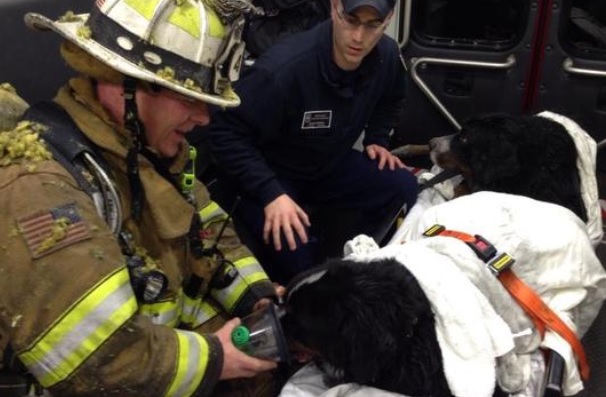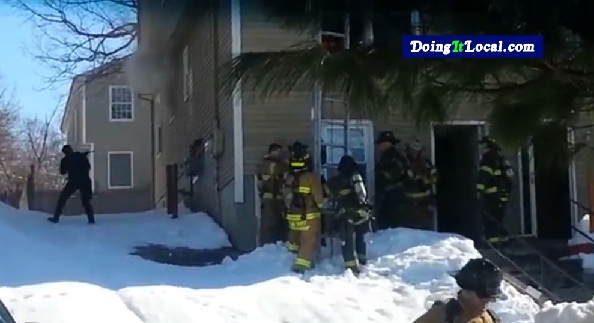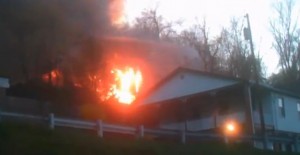Document confirms DC 911 dispatchers failed to answer emergency radio channels
Paperwork shows disciplinary action followed numerous STATter911 reports

Looking for a quality used fire truck? Selling one? Visit our sponsor Command Fire Apparatus
Radio silence. That’s what DC firefighters and EMS crews received for many minutes on emergency radio channels at least 11 times last year. During these sudden blackouts, the 911 center failed to answer important –and in some cases urgent — radio transmissions from DC Fire & EMS. These included, an ambulance crew attacked by a violent person, a request for paramedics after a patient went into cardiac arrest (audio below) and crews responding to a reported shooting, unable to determine if the scene was safe to enter. In each case, DC 911 didn’t answer. The silence wasn’t just from dispatchers. Their bosses at the Office of Unified Communications (OUC) also weren’t talking.
Now, one year after the first incident was reported, an OUC document obtained by STATter911 is doing the talking. It appears to show dispatchers were disciplined in at least four of the cases where emergency radio channels weren’t answered. In addition, 911 workers were disciplined or counseled in connection with at least seven other OUC errors first reported by STATter911 during 2020.
This information comes from a Freedom of Information Act (FOIA) request by the publication Communications Daily that was shared with STATter911. Communications Daily asked for details on any dispatching errors made by OUC staff or contractors during all of FY20. There was also a specific request about errors “that hindered the emergency response.”
What Communications Daily received is a six page grid showing a list of 43 complaints investigated by OUC between August 2019 and September 2020. The document shows 24 of those complaints were sustained. Three additional items were identified as incidents involving “great customer service”.
If you’re thinking just 24 verified mistakes over 13 months is an impressive record for a 911 center that handles more than 1.5 million calls each year, you’d be right. That’s a number STATter911 will take a closer look at in our next report. First, let’s review some of those 11 very troubling moments when the radios went dark. Those incidents set the stage for a year of denial about how significant the problems are at DC 911.
The silent treatment

Since February 23, STATter911 has requested more information from OUC about the document sent to Communications Daily. There’s been no response. I’ve also asked, on numerous occasions, why radio channels weren’t answered. No reply there either. In fact — for an entire year — DC officials haven’t even bothered to acknowledge my emails. The last OUC response from public information officer Wanda Gattison came on February 25, 2020 (email above). It was received about three hours after a five-minute noon blackout on two radio channels (audio below) used for EMS responses. Ms. Gattison simply replied, “Thanks, we are looking into it now”. Those were her last words. I never heard from her again.
My many questions have been left unanswered. But just because the DC Government wasn’t responding doesn’t mean they weren’t listening. The complaint list shows OUC was paying attention and taking action following STATter911 stories and tweets.

Sixteen of the complaints listed in the OUC document occurred on the same dates and, in some cases, showed the same addresses as mistakes first reported by STATter911. While OUC and the Office of the Deputy Mayor for Public Safety and Justice haven’t officially confirmed these are the same incidents, the list has additional clues, including notations that eight of the complaints came from “social media”. That makes sense since I tagged OUC on Twitter each time the radios went unanswered.
An important note: STATter911’s advocacy journalism focusing on OUC has never been about encouraging disciplinary action against 911 staff. Just the opposite. First of all, it’s highly unlikely anyone at OUC goes to work wanting to do a poor job. What’s needed first is much better training and management. My documentation of almost 150 dispatching issues in the past 12 months show the problems are systemic and are the result of failed leadership. My only reason for highlighting these disciplinary actions is to help show the reality inside the 911 center is quite different than the rosy descriptions of OUC and its management presented numerous times by Mayor Muriel Bowser. In fact, on multiple occasions last year, Mayor Bowser downplayed STATter911 reporting. Bowser told one reporter asking about STATter911 stories, that she wouldn’t “go down that rabbit hole with Dave Statter” (video below).
A technical error?
A week after it occurred, OUC’s Wanda Gattison told WTTG-TV/FOX 5 reporter Evan Lambert the February 25 noon radio silence was a “technical error”. But as more incidents occurred, the “technical error” explanation became less believable. Here’s why: As soon as DC Fire & EMS alerted OUC that no one was answering some of the radio channels, the problem instantly vanished and radio transmissions resumed. All signs pointed to a people problem. Something as simple as a volume control being turned down or dispatchers leaving a radio channel unstaffed during a break.
On April 30, Mayor Bowser confirmed those suspicions. When reporter Paul Wagner asked about the six incidents STATter911 reported at that point (video below), Bowser — without hesitation — made it clear the radio blackouts were not a technical issue or even a staffing shortage connected to the growing pandemic. Of course, discounting a technical issue also contradicted OUC’s previous explanation.
While OUC still hasn’t come clean about the six incidents known at the time of Mayor Bowser’s response, the grid sheds light on four of the five radio blackouts that happened after the press conference. The document indicates they were the fault of dispatchers. It appears action was taken against 911 staff for not answering the radio during two separate occasions on June 8, and once each on July 27 and September 28. While the charge is listed generally as “not adhering to radio policy” the dates and specific radio channels involved track with STATter911 reporting. And two of the incidents clearly show the complaints came via social media. That makes sense since OUC was tagged in STATter911 tweets on each occasion dispatchers didn’t answer the radio for extended periods.

The fact that there were at least 11 of these incidents over nine months — and that five occurred even after the issue was very publicly brought to the attention of DC’s mayor — is more evidence of management’s failure to effectively address continuing OUC problems. The question now is why were most of these incidents left off a document that’s supposed to account for all dispatching errors that hinder emergency response?
Doesn’t failing to answer an urgent request for paramedics when a patient goes into cardiac arrest hinder emergency response? Doesn’t failing to answer an urgent request for police because paramedics are in danger also hinder emergency response? And how about radios suddenly going silent when firefighters and EMS are trying to coordinate a safe response to a shooting scene?
Of course, the answer to all of these questions is yes. Each time OUC’s dispatchers aren’t available greatly hinders emergency response. Yet the majority of the incidents aren’t in the grid. If OUC’s document is to be believed, no one investigated seven time when dispatchers didn’t answer the radio. Why?
But what is even more worrisome is those seven incidents are only a small portion of what OUC’s document is missing. I’ll look at that bigger picture during our next report.







